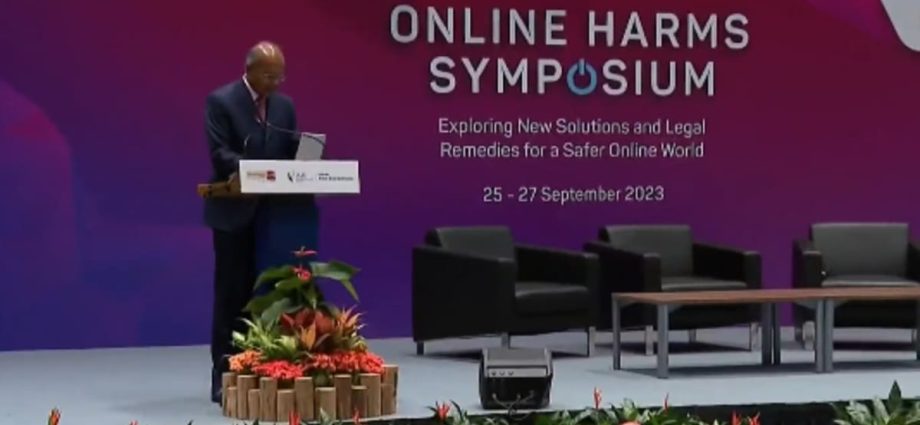
EXPANSION OF LAWS NEEDED TO PLUG GAPS
In this area, authorities could look towards other countries which have in place laws and regulations aimed at preventing the non-consensual distribution of intimate content, said Assistant Professor Saifuddin Ahmed, from the Wee Kim Wee School of Communication and Information at the Nanyang Technological University (NTU).
“The overall goal is to provide support and protection to individuals whose privacy and dignity have been violated by the content online,” Prof Saifuddin told CNA’s Singapore Tonight.
“The US, UK, Australia, have implemented these laws. (They) can be studied to identify the areas that have worked and those which may need improvement, especially the areas which can be applied in the Singaporean context.”
Prof Saifuddin said that before expanding the laws, authorities need to identify areas that need more attention. One such area of particular concern would be deepfakes, which cases have increased the past few years, he added.
However, he acknowledged that implementation and enforcement of such laws could face challenges as online content can be uploaded anywhere in the world, and the constant evolution of technology means malicious actors can continue to find ways to hide.
“Investment in advanced digital forensics could be one way to trace these sources. Also, strengthening data protection and privacy regulations could prevent data misuse by overseas actors,” he said, adding that international cooperation and agreements on internet regulation can facilitate cross-border investigations.
ONLINE HARMS SURVEY RESULTS ‘SOBERING’
During the symposium, Mr Shanmugam pointed to a recent study by non-profit organisation SG Her Empowerment (SHE), showing that 38 per cent of respondents have encountered harmful online content.
This is more common among youths, with two-third of respondents having experienced online harms, showed a separate survey conducted by the National Youth Council.
Mr Shanmugam said continued exposure can have a serious impact.
“The survey findings are quite sobering. It is a reality check. You really can’t have generations of young people growing up with these issues. Their mental health, amongst other things, will be seriously affected,” he said.
“(Victims) have their self-confidence shattered, traumatised, victimised, bullied and we have generations growing up like that. Most individuals say they want practical solutions.”
The issues were discussed during the symposium, which includes attendees such as academics, major tech firms, and supreme court judges.
The event also featured a panel of victims, including Eve, who shared her experience with cyberstalking and harassment.
She joined the panel to contribute to more awareness on the different kinds of online harms, and to call for more to be done to protect and empower victims.
“My case is not as severe as compared to a lot of other people who have experienced online harms,” she said.
“But I do wish someone could look into how the laws governing this space can be improved so that victims, like myself, can be protected.”

